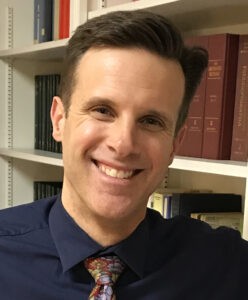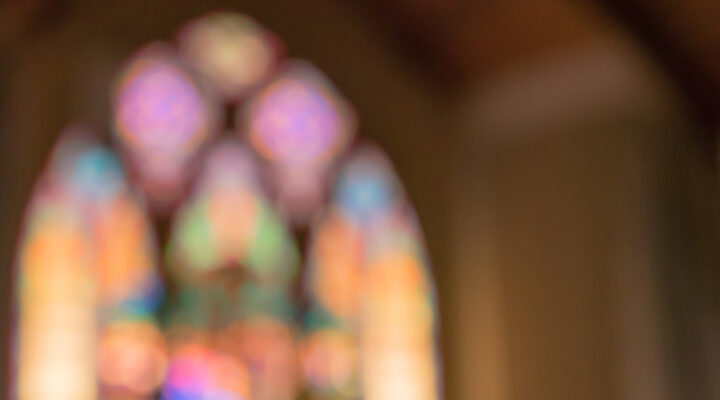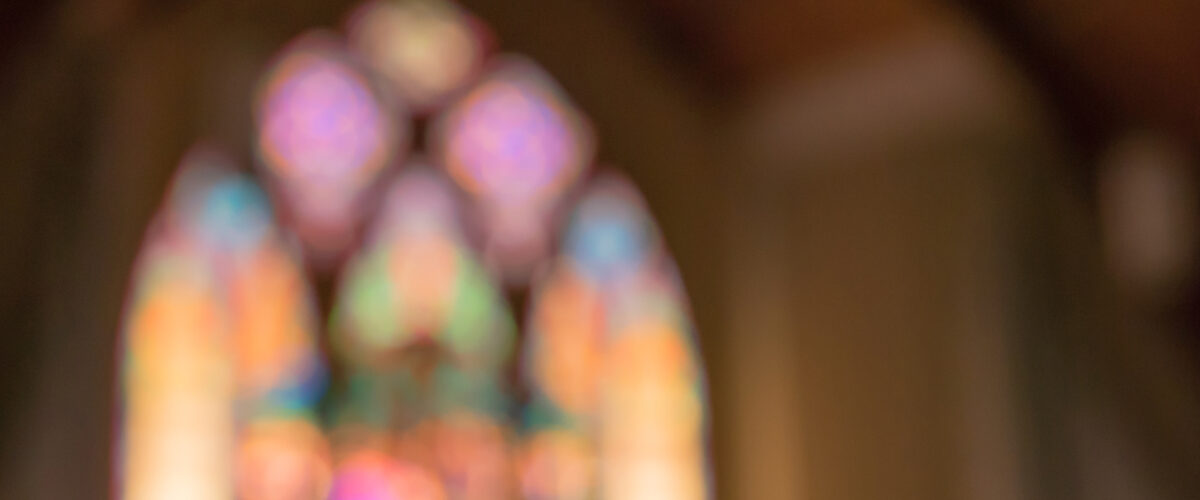My mother tongue is not church. However, I have been intimately engaged in the church since my mid-20s. Thus, I am now not only fluent in church, but can speak a couple of different dialects.
Perhaps my 20-year deficiency is the reason I still find it puzzling that many Christians regularly choose other activities over gathered worship on Sundays with the congregation where their membership is found.
I was instructed while in divinity school in the late 1990s that the vestiges of Western-style Christendom are no more. I often heard something to this effect, “The days of opening the door to the meeting house and saying, ‘Y’all come’ are over.” And so it was. And so it is.

Paul R. Gilliam III
These days, I hear a similar message regarding the post-pandemic church. It all has changed, yet again. We cannot “do church” as we used to. This is a concerning message for, as far as I can tell, no one had yet solved the mystery of “how to do church” in the post-Christendom era.
In the 1990s, both as a divinity school student and pastor, I was optimistic about church in the post-Christendom period. I now understand that I was naïve, perhaps, due to my native secular tongue. I thought back in those days, it will be OK. In fact, I wondered why all the fuss.
Indeed, the larger society no longer cooperates with the church calendar. Yes, there are now a plethora of activities on offer on Sundays in addition to gathered worship. I hear you — any day of the week and any time of the day are now game for athletic events, both amateur and professional. Shopping malls no longer close on Sundays. And I could go on ad nauseum.
My role then, as a pastor, is to challenge Christians to take a stand and to center their lives around the activity of the local church even now that church life is not as convenient as it once was. I anticipated some frustration with this now essential task of leading a congregation to keep the church at the center as American culture pushes the life of the church to the periphery. However, I was optimistic. I thought it could be done.
“My role … is to challenge Christians to take a stand and to center their lives around the activity of the local church even now that church life is not as convenient as it once was.”
I am now a 50-year-old man. I serve First Baptist Church of Ahoskie, N.C., as pastor, the fourth congregation I have served as full-time pastor. And I am yet to bury the naivety of that 25-year-old divinity school pastor. In fact, listen to this: During the early days of my pastorate with First Baptist Ahoskie, I officiated a memorial service for a lifelong faithful church member. As I was new to the church, I had met Alvin only once face-to-face, and we shared one lengthy phone conversation. Thus, during the memorial service itself, I became better acquainted with Alvin as others shared about this dedicated churchman’s long life. When his daughter spoke, she made a seemingly nonprovocative statement that provoked me. She said, “Each year, we would leave for vacation after worship.” I had a moment right there in my chancel chair. I wondered then, as I do now, why is this no longer common practice among church members. Why do we clergy not ask our flock to, when possible, leave for trips after Sunday worship and return from trips in time for Sunday worship?
So, as old-fashioned as it seemed and as elementary as it felt, I asked the flock I serve as pastor to do this very thing. I called it the “Twelve Sundays Challenge.” I requested the members of First Baptist Ahoskie to keep track of how many Sundays they missed in a year. The goal: Miss no more than 12 Sundays in one year, one Sunday a month on average. The result: A steady increase, even in a declining community, in worship participation — from 160 people in worship in 2017 to 175 people in worship in 2018 to 181 people in worship in 2019. Then, of course, with 2020 came COVID. Although we are making progress, our numbers are not yet back to where they were pre-COVID.
Perhaps I sound like an early 1970s Southern Baptist with all this talk of numbers. I am not. Remember the first 20 years of my life were spent outside the church. Until my last day, I will be, as with Paul’s understanding of the Gentiles in Romans 11, grafted into a cultivated olive tree.
So, what’s my deal? Why do I sound so old-fashioned, behind the times and perhaps even refusing to change?
Young Life, an evangelical outreach to high school students, was instrumental to my Christian journey. During the summer of 1989, after hearing a talk on the meaning of Jesus’ death, I sat under a tree at Windy Gap — a Young Life camp in Weaverville, N.C. There, I prayed to receive Jesus the Christ as my Lord and Savior. The Young Life week-long summer camp experience is undergirded with the philosophy that people’s lives are noisy. The week retreat, surrounded with the Christian message, gives teenagers an opportunity to hear of God’s love, demonstrated through Jesus the Christ, that they might otherwise not receive.
Once every seven days, Sunday morning worship serves the same purpose for people of all ages. There is no other time like it during the week for most people. For about 60 minutes (in my tradition), our eyes and ears and minds and souls are saturated with the Christian message. It is not that we do not, or cannot, hear God’s voice in chaotic weekday activities. However, the truth remains that we are more likely to lose weight if we put ourselves in an environment that facilitates weight loss.
My concern is that as Christians become increasingly secular in their lifestyles, as manifested by the reality that a lot of Christians I know miss a lot more than 12 Sunday worship services in a year, we are less likely to hear God’s voice and sense God’s call. We are more likely to live lives characterized by insecurity and anxiety because we fail to put ourselves in an environment regularly in which we are reminded of God’s great act of love in Christ for us as well as an environment where we express our great love for God to God. The gathered worship of God, I believe, is one of the healthiest activities we humans engage in together.
“The gathered worship of God, I believe, is one of the healthiest activities we humans engage in together.”
I have an academic colleague who tells of raising his son in the Catholic church. As with many adolescents, his son often would express his displeasure with “going to church.” When his son complained of boredom, my colleague responded, “Son, I don’t care if you are bored. I want you to breathe the air in that sanctuary.”
I think this is exactly right. We need to breathe the air of gathered, in-person worship at least weekly. If we do not, people run the risk of missing the call of God upon their lives — the call to salvation, the call to vocation, the call to ministry, the call to love of neighbor, and the call to rest assured that God knows the number of hairs upon their head.
It is concerning that, at least in the circles I walk, some clergy seem to excuse, sometimes even approve, the missing of so much gathered worship. I recently heard a clergyman take a jab at Chick-fil-A for closing on Sundays. I heard another minister sheepishly acknowledge a 40% decrease in Sunday morning worship participation, over many years, because people now have beach houses they want to visit. I live in the same world as my pastoral colleagues. Yes, Christendom is gone. While the pandemic has caused disruption, I am not persuaded the post-pandemic world will be as different from pre-pandemic world as post-Christendom is different from pre-Christendom. Time will tell.
Although the 50-year-old pastor has changed considerably from the 25-year-old pastor (living in another country for an extended time will do that to a person), some of the naivety remains. I still find Hebrews 10:23-24 persuasive in our post-Christendom and hopefully post-COVID world, “Let us hold fast the confession of our hope without wavering, for he who promised is faithful; and let us consider how to stimulate one another to love and good deeds, not forsaking our own assembling together, as is the habit of some, but encouraging one another; and all the more as you see the day drawing near.”
I do not yet know what readers think of my ideas presented in this piece. However, I am confident Alvin would concur.
Paul R. Gilliam III serves as pastor of First Baptist Church of Ahoskie, N.C., as well as director of the religion program at Chowan University.
Related articles:
The return to church has hit a plateau
Survey says: When parents reduce church attendance, so do their teens
Let’s stop the average Sunday attendance freak out | Opinion by Mark Tidsworth


